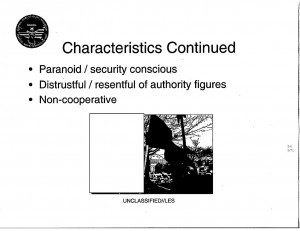Taxes
Ever since the 1980s cutting taxes
for the rich has been a popular cure for unemployment. If the rich
have more money—so the story goes—they have more money to invest.
After all they already have more money than they can possible spend.
If we give them even more by cutting their taxes, they will invest
more and thereby create jobs.
During his presidential campaign,
four years ago, Sen. McCain was asked how many houses he owns. He
could not remember whether it was eight or nine. There is little
point in him buying more houses. Ann Romney owns a number of cars,
among them two Cadillacs. How many more could she use?
So, having all the houses and
Cadillacs (not to mention yachts and other necessities) they could
possibly use, the rich will invest their money where they think it
will bring in the highest return.
Those investments—so goes the
popular story—will create more jobs.
If we want to create more jobs, we
should cut the taxes on the rich. Simple, no?
Actually, the matter is a bit more
complicated. Let's look at Mr. Moneybags and his terrible problem, he
has too much money. He goes to his financial adviser, almost in
tears: “Please tell me what to do with my money.”
The financial advisor will list the
options: Mr. Moneybags can build some new factories to produce food,
clothing, electronic gadgets. But with a lot of people in the US out
of work, with middle and working class wages pretty flat for the last
ten or more years, no one in our country has money to buy stuff. If
Mr. Moneybags produces more commodities, he may find himself unable
to sell them.
Creating new jobs in US
manufacturing does not pay. So Mr. Moneybags will not do that, even
if we do cut his taxes.
He could lend his money to our
government, but interest rates are extremely low. The return on
government bonds is very small. Not a good investment.
He could invest his money in a bank.
That is attractive because banks are, once again, making money.
He could also put
his money in financial
investments, derivatives, bundled mortgages and other esotheric
items. (Warren Buffett comments :”I view derivatives as time
bombs,”) He might well make money
with those.
But he would not be creating a lot
of jobs.
China is thriving. There are more
rich people there than ever before. An economically comfortable
middle class is growing. Some Chinese have money to buy things. Maybe
Mr. Moneybags could build a factory over there (or buy one) and make
a good profit. That would be good for him but would not create jobs
in the US.
Cutting taxes for the rich is
unlikely to create a lot of jobs in the US.
There are three ways to create jobs
in the US:
Our roads, schools, bridges and
other public works have been neglected. There are many potentials
jobs in public works. We could raise taxes on the rich and rebuild
our roads, schools, bridges. We could clean up parks, support
libraries and museums, build bike paths, skate board parks, trails
for ATVs, etc.
We can raise wages. One out of every
four jobs in the US does not pay enough to support a family of three.
One out of four wage earners cannot buy anything except the most
essential goods. Paying more generous wages will increase demand and
create more jobs to fill increased demand. Demand will increase if
poor people have more money to spend.
Many Americans lack important
services: education, health care, counseling or mental health
support, legal services, home repairs, all kinds of services for the
elderly, etc. A lot of new jobs would open up if we tried to provide
everyone with even minimal services.
Cutting taxes on the rich will not
create many new jobs in the US to pay for any of these projects.
The slogan that cutting taxes on
the rich will create more jobs is a barefaced lie, invented by the
rich and their supporters in order to line their pockets.





